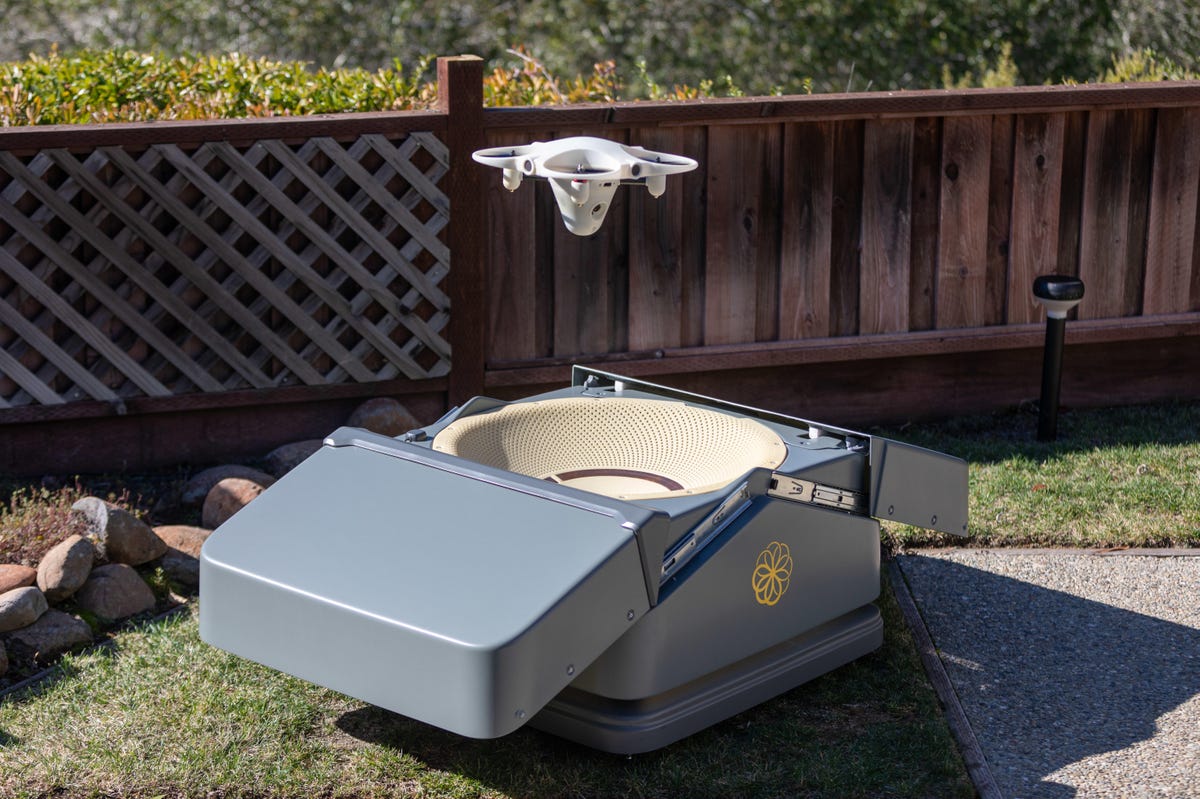This Home Security Drone Could Help You Tell Possums From Prowlers
Using a drone for security automated home security drone security drones for home drone home security surveillance drone for security services drone security system for home can drones be used for home security this home based position

This home security drone could help you tell possums from prowlers
A drone might be your next guard dog.
Sunflower Labs, a San Francisco-based startup, is combining motion detectors, a quadcopter and a phone app into a home security system. The Sunflower system could go on sale in 2020, according to CEO Alex Pachikov, who expects to charge wealthy customers several hundred dollars a month for the peace of mind -- and replacement hardware if anything breaks. For comparison, premium security systems can cost more than $100 a month, and Sunflower says that six-camera systems can cost up to $300 per month.
Drones for home protection might seem like overkill, especially if you first heard of unmanned aerial vehicles as something the military uses. But Pachikov said Sunflower's technology is actually meant to head off the bunker mentality. In some areas, 99 percent of all home security calls are false alarms, so you probably don't need to freak out when you hear the backyard bushes rustling.
"Our brand is built around dispelling the notion that you need a panic room," Pachikov said during a meeting at his Sunflower-protected home in a suburb south of San Francisco. Sunflower's drone system, he said, will set your mind at ease by confirming it's a possum, not a prowler, in your backyard.
Drones have captured popular attention as they've become commercialized. Farmers monitor crops with drones, real estate agents photograph homes with them and movie makers use them to shoot overhead scenes. Some pests using drones have shut down traffic at major airports, including London's busy Heathrow and Gatwick.
Sunflower, which has 20 employees located in both California and Switzerland and demonstrated its tech at CES this year, isn't the only company to use drones for security. Alarm.com touted some in 2017, and Drone Guarder is taking preorders for its products.
"Two-thirds of families in America live in homes suitable for this," Pachikov said, so when costs come down, he expects drone security to be commonplace. "They'll be as common as Ubers in San Francisco. An average home will be able to afford this."
How it works
Sunflower drones are the most obvious part of the company's system, but it actually begins with what look like sidewalk lights -- "sunflowers" -- that will dot your property. The lights illuminate the ground and are equipped with motion and vibration detectors.
The sunflowers send alerts to a computer in the drone's base station, which Sunflower calls "the Hive." The computer processes the signals to distinguish footfalls from car traffic and other benign sources of noise. The motion sensors can also tell if something is tall and narrow like a human, or short and wide like a dog.
If the base station computer is worried, it sends an alert to an app on your phone. That will let you deploy a drone, which Sunflower calls "the Bee." The base station cover opens and the drone heads out, piloting itself automatically around obstacles and staying about 20 feet in the air as it heads to the trouble spot. You can watch the video live on your phone.
There's no direct connection to the police, but Sunflower Labs' setup can pull together a data package if you need to file a report. Pachikov says the startup could use others' computing interfaces to automate reports in the future.
Plenty of challenges
Getting Sunflower's quadcopters in the air won't be without its challenges. Air space is heavily regulated, and a waiver from the Federal Aviation Administration is necessary to fly a drone at night or beyond your own line of sight. If you're near an airport, you'll need to jump through more hoops.

The Sunflower Labs drone emerges from its "Hive" base station. It's part of a home security system set to go on sale in 2020.
Stephen Shankland/CNETBut Sunflower Labs expects those regulations to ease. Indeed, Transportation Secretary Elaine Chao unveiled plans last month to liberalize some federal drone rules, in part to boost the economy and create jobs.
Sunflower and its competitors will also face concerns from society at large. Is a mail carrier going to be happy when a quadcopter swoops by? And how about neighbors who don't want the noise or privacy intrusion?
I found the drones weren't bothersome when I attended a company demonstration. I could hear the UAV through an open back door, but it was far quieter than gas-powered leaf blowers or lawnmowers.
As for privacy, the drone flies only on the perimeter of your property and the cameras point toward your house. That means they won't peer into other homes.
Of course, you'll have to explain that to an edgy neighbor.
First published Feb. 7 at 5 a.m. PT.
Update, 8:54 a.m. PT: Corrects the spelling of Alex Pachikov's name and adds more information about the cost of security systems.
Best drones for 2019: Our editors hand-picked these products based on our tests and reviews.
High-flying pests : Super Bowl 2019 stadium pestered by drones, despite ban.
Source
